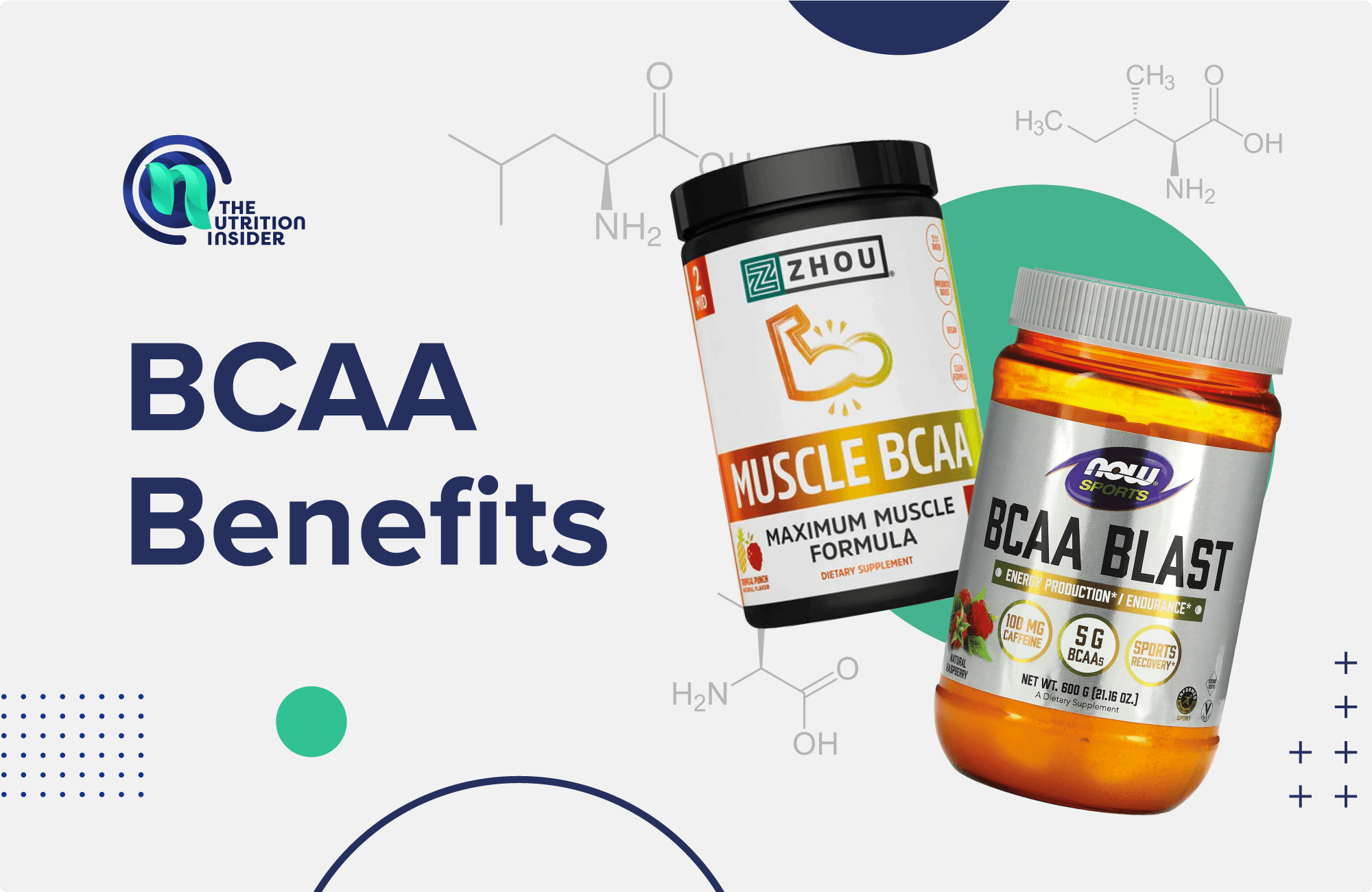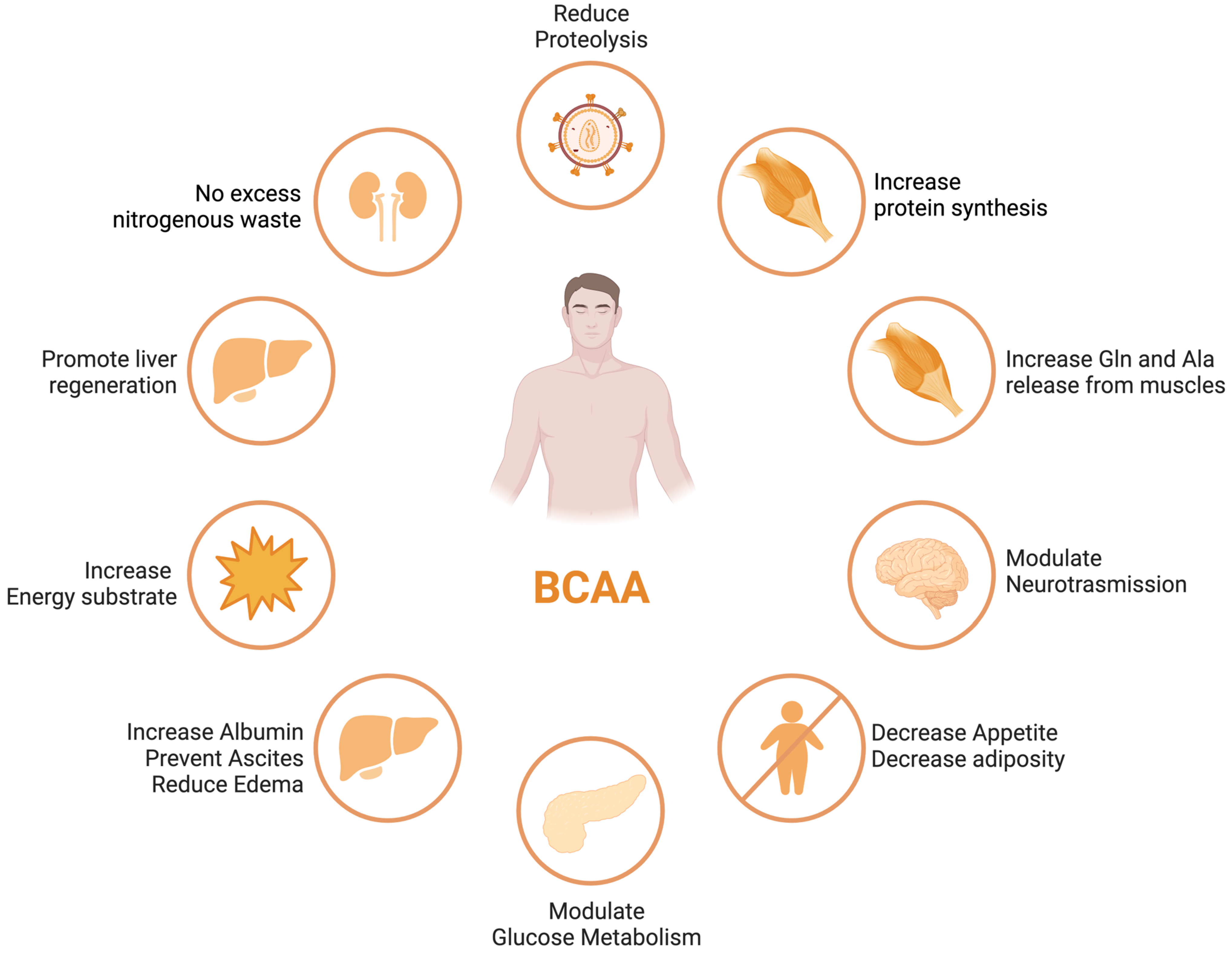Research indicates that branched-chain amino acids (BCAAs) can promote muscle growth, lessen soreness and fatigue, prevent muscle degradation, and support liver health. They’re naturally present in many foods, including meat, eggs, and dairy.
The human body builds thousands of different proteins from 20 distinct amino acids.
Nine of these 20 are classified as essential amino acids, which the body cannot synthesize and therefore must be supplied through the diet.
Among those nine essential amino acids, three are known as branched-chain amino acids: leucine, isoleucine, and valine.
“Branched-chain” describes the molecular shape of these amino acids. BCAAs are abundant in protein-dense foods such as eggs, meat, and dairy, and they’re commonly sold as dietary supplements, mainly in powder form.
Below are five proven advantages of BCAAs.
1. Promote muscle growth
A common application of BCAAs is to enhance muscle growth.
The BCAA leucine activates signaling pathways that drive muscle protein synthesis, the process by which new muscle is formed.
In one trial, participants who drank a beverage containing 5.6 grams (g) of BCAAs after resistance training experienced a 22% larger increase in muscle protein synthesis than those who consumed a placebo.
However, that rise in muscle protein synthesis was roughly 50% lower than what older trials observed when participants consumed a whey protein shake with a comparable BCAA content.
Whey protein supplies all essential amino acids required for muscle formation.
Thus, while BCAAs can stimulate muscle protein synthesis, maximal muscle-building requires the full complement of essential amino acids found in whey or other complete protein sources.
summaryBCAAs contribute to muscle building. Still, optimal results require all essential amino acids, not just the branched-chain ones.
2. Reduce muscle soreness

Some studies indicate BCAAs may help reduce muscle soreness following exercise.
Feeling sore a day or two after a workout is common, especially when you’re trying new movements.
This post-exercise discomfort is known as delayed onset muscle soreness (DOMS). It typically appears 12 to 24 hours after activity and can persist for up to 72 hours.
The exact cause of DOMS isn’t fully understood; one hypothesis is that it results from microscopic tears in muscle fibers after strenuous activity.
Other research proposes it might be linked to the connective tissues surrounding muscles rather than the muscle fibers themselves.
BCAAs have been shown to reduce muscle damage, which may shorten the duration and lessen the intensity of DOMS.
Multiple studies demonstrate that BCAAs lower protein breakdown during exercise and decrease levels of creatine kinase, a marker of muscle damage.
In a 2010 trial, subjects who took BCAA supplements before performing squats reported less DOMS and reduced muscle fatigue compared with a placebo group.
Therefore, taking BCAAs—particularly before training—may hasten recovery.
summarySupplementing with BCAAs might cut down muscle soreness by diminishing exercise-induced muscle damage.
3. Lessen exercise-related fatigue
Alongside reducing soreness, BCAAs may help diminish fatigue caused by exercise.
Everyone experiences fatigue during physical exertion; how quickly you become tired depends on factors like intensity, duration, environment, nutrition, and fitness level.
During exercise, muscles consume BCAAs, which lowers their concentration in the bloodstream. When blood BCAA levels fall, the brain’s uptake of the essential amino acid tryptophan tends to rise.
In the brain, tryptophan is converted into serotonin, a neurotransmitter thought to play a role in the development of fatigue during prolonged exercise.
Two studies reported that participants who supplemented with BCAAs experienced reduced central fatigue and improved athletic performance.
summaryBCAAs can influence brain chemistry—such as serotonin levels—which may help reduce exercise-induced fatigue.
4. Prevent muscle wasting
BCAAs can help prevent muscle loss and breakdown.
Muscle proteins are continuously broken down and rebuilt. The balance between protein breakdown and synthesis determines net muscle protein content.
Muscle wasting occurs when breakdown exceeds synthesis.
This type of muscle loss is associated with malnutrition and conditions such as chronic infections, cancer, fasting periods, and normal aging.
In humans, BCAAs make up about 35% of the essential amino acids in muscle proteins and represent 40%–45% of the total amino acids required by the body.
Consequently, replenishing BCAAs and other essential amino acids during periods of muscle wasting is important to stop or slow the process.
Several studies support using BCAA supplements to inhibit muscle protein breakdown, which may improve outcomes and quality of life in groups like older adults and individuals with illnesses such as cancer.
summaryBCAA supplementation can help prevent protein breakdown in populations vulnerable to muscle wasting.
5. Support people with liver disease
BCAAs might provide advantages for individuals with cirrhosis, a long-term condition in which liver function is impaired.
About half of people with cirrhosis develop hepatic encephalopathy, a decline in brain function that occurs when the liver fails to remove toxins from the bloodstream.
While treatments for hepatic encephalopathy often include certain sugars and antibiotics, BCAA supplementation may also be beneficial.
A review of 16 studies covering 827 people with hepatic encephalopathy found that BCAA supplements improved signs and symptoms of the condition, though they did not reduce mortality.
Liver cirrhosis is a significant risk factor for hepatocellular carcinoma, the most common form of liver cancer, and BCAA supplements may also have a role in this context.
Several earlier studies suggested BCAA supplementation could offer protective effects against liver cancer in people with cirrhosis.
Accordingly, clinical guidelines recommend these supplements as a nutritional measure in liver disease to help prevent complications (33).
summaryBCAA supplements may enhance clinical outcomes in liver disease and might help guard against liver cancer.
Foods high in BCAAs
BCAAs are present in whole foods and in complete protein supplements.
Obtaining BCAAs from complete protein sources is generally preferable because these provide all essential amino acids.
Fortunately, many common foods supply BCAAs, making supplementation unnecessary for most people who already consume adequate protein.
Eating protein-rich foods also delivers other nutrients that BCAA supplements do not provide.
The best dietary sources of BCAAs include:
FoodServing sizeBCAA contentGround beef, 90% lean3.5 ounces (oz) (100 g)4.5 gChicken breast3.5 oz (100 g)5.5 gWhey protein powder1 scoop (25 g)5.9 gPea protein powder1 scoop (25 g)4.5 gCanned tuna3.5 oz (100 g)4.6 gSalmon3.5 oz (100 g)4 gGround turkey, 93% lean3.5 oz (100 g)3.2 gEggs2 eggs2.6 gParmesan cheese1 oz (28 g)2.2 gMilk, 1%8 oz (237 milliliters)1.7 gGreek yogurt1 cup (227 g)4.1 g

summaryMany protein-dense foods are rich in BCAAs. If your diet supplies sufficient protein, additional BCAA supplements are unlikely to offer extra benefit.
The bottom line
Branched-chain amino acids (leucine, isoleucine, and valine) are three essential amino acids that must be obtained from food.
BCAA supplements have been shown to support muscle growth, reduce exercise fatigue, and alleviate muscle soreness.
They have also been used clinically to prevent or slow muscle loss and to improve symptoms in some liver disease patients.
However, because most people receive ample BCAAs through their regular diet, taking extra BCAA supplements is unlikely to yield meaningful additional benefits for the average person.
For readers considering supplementation, comparing options like a best BCAA product or learning more about when to take BCAA can help you decide whether a BCAA supplement is appropriate. General background on BCAA supplements is also useful before making a purchase.


















Leave a Reply
You must be logged in to post a comment.